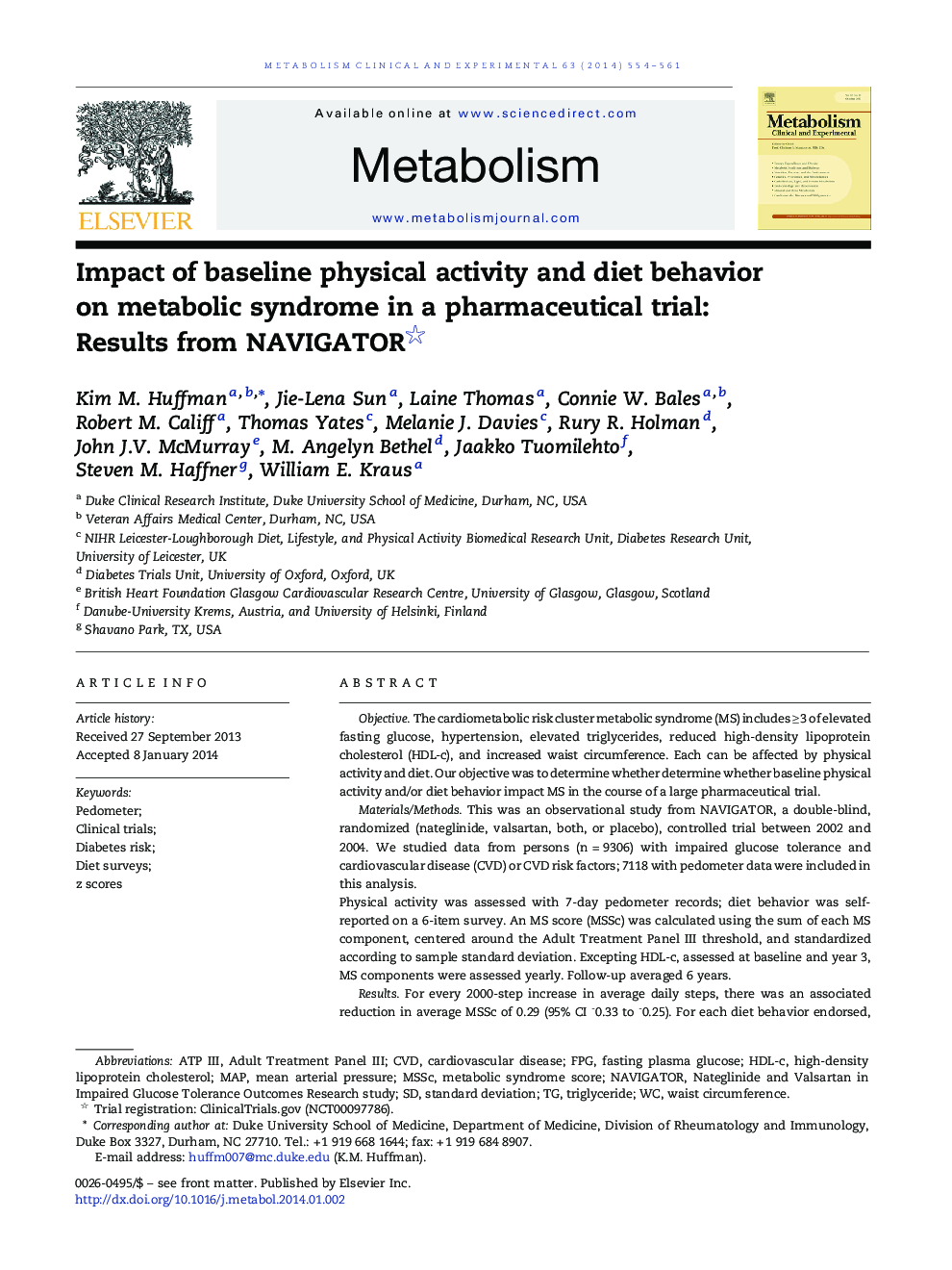| کد مقاله | کد نشریه | سال انتشار | مقاله انگلیسی | نسخه تمام متن |
|---|---|---|---|---|
| 5903433 | 1157077 | 2014 | 8 صفحه PDF | دانلود رایگان |

ObjectiveThe cardiometabolic risk cluster metabolic syndrome (MS) includes â¥Â 3 of elevated fasting glucose, hypertension, elevated triglycerides, reduced high-density lipoprotein cholesterol (HDL-c), and increased waist circumference. Each can be affected by physical activity and diet. Our objective was to determine whether determine whether baseline physical activity and/or diet behavior impact MS in the course of a large pharmaceutical trial.Materials/MethodsThis was an observational study from NAVIGATOR, a double-blind, randomized (nateglinide, valsartan, both, or placebo), controlled trial between 2002 and 2004. We studied data from persons (n = 9306) with impaired glucose tolerance and cardiovascular disease (CVD) or CVD risk factors; 7118 with pedometer data were included in this analysis.Physical activity was assessed with 7-day pedometer records; diet behavior was self-reported on a 6-item survey. An MS score (MSSc) was calculated using the sum of each MS component, centered around the Adult Treatment Panel III threshold, and standardized according to sample standard deviation. Excepting HDL-c, assessed at baseline and year 3, MS components were assessed yearly. Follow-up averaged 6 years.ResultsFor every 2000-step increase in average daily steps, there was an associated reduction in average MSSc of 0.29 (95% CI -0.33 to -0.25). For each diet behavior endorsed, there was an associated reduction in average MSSc of 0.05 (95% CI -0.08 to -0.01). Accounting for the effects of pedometer steps and diet behavior together had minimal impact on parameter estimates with no significant interaction. Relations were independent of age, sex, race, region, smoking, family history of diabetes, and use of nateglinide, valsartan, aspirin, antihypertensive, and lipid-lowering agent.ConclusionsBaseline physical activity and diet behavior were associated independently with reductions in MSSc such that increased attention to these lifestyle elements provides cardiometabolic benefits. Thus, given the potential to impact outcomes, assessment of physical activity and diet should be performed in pharmacologic trials targeting cardiometabolic risk.
Journal: Metabolism - Volume 63, Issue 4, April 2014, Pages 554-561